Tag: political science
-
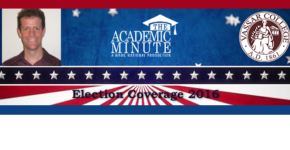
Curtis Dozier, Vassar College – Political Rhetoric
What do Aristotle and sound bites have in common? Curtis Dozier, visiting assistant professor of Greek & Roman studies at Vassar College, examines whether candidates use Aristotle’s teachings when appealing to voters. Curtis Dozier received his Ph.D. from the University of California, Berkeley in 2008 and specializes in Latin poetry, classical rhetoric, and ancient literary…
-
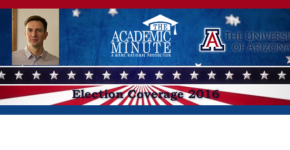
Scott Selisker, University of Arizona – Brainwashing
Are we being brainwashed? Scott Selisker, assistant professor of English at the University of Arizona, examines if we are as free thinking as we think we are. Scott Selisker teaches at the University of Arizona, and he has also taught at Macalester College, the University of California, Santa Barbara (as an ACLS New Faculty Fellow)…
-
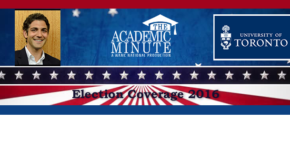
Matthew Feinberg, University of Toronto – Persuading Political Opponents
If you want someone to switch political sides, try their perspective. Matthew Feinberg, Assistant Professor of Organizational Behaviour at the University of Toronto’s Rotman School of Management, explores why people tend to stick to their own side in a heated debate. Matthew Feinberg is an Assistant Professor of Organizational Behaviour at Rotman. He earned his…
-

Laura Albright, University of Indianapolis – Lurleen Wallace and Women In Politics
Studying women in politics helps us understand the past and how to improve the future. Laura Albright, assistant professor of political science at the University of Indianapolis, examines the life of a former female governor, and shows us how far we still have to go. Laura Albright is an assistant professor of political science at…
-

Leanne ten Brinke, University of California Berkeley – Virtues, Vices and Political Influence
Do virtues or vices make for a more influential politician? Leanne ten Brinke, Banting Postdoctoral Fellow in the Haas School of Business and Department of Psychology at the University of California Berkeley, describes how these different factors affect the political elite. Leanne ten Brinke, Ph.D. is a Banting Postdoctoral Fellow in the Haas School of…
-

Douglas Massey, Princeton University – US Border Patrol Policy
Has our current border patrol policy failed? Douglas Massey, Professor of Sociology and Public Affairs at Princeton University, examines whether policies made to keep people out are actually keeping them in. Douglas S. Massey has served on the faculties of the University of Chicago and the University of Pennsylvania. His research focuses on international migration,…
-
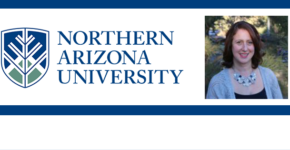
Lori Poloni-Staudinger, Northern Arizona University – Female Terrorists
Female terrorists are used partly for their shock value. Lori Poloni-Staudinger, professor and department chair in the department of politics and international affairs at Northern Arizona University, explores how the idea of women as peaceful life-givers makes their attacks stand out more than those by their male counterparts. Lori Poloni-Staudinger is a professor of politics…
-

Krista Jenkins, Fairleigh Dickinson University – Political Differences between Mothers and Daughters
Mothers and daughters may back different political candidates this year. Krista Jenkins, professor of political science at Fairleigh Dickinson University, determines whether coming of age in the women’s movement may lead mothers to back Hillary, while their daughters go for Bernie. Krista Jenkins (PhD, Rutgers University) is Director of PublicMind and associate professor of political…
-
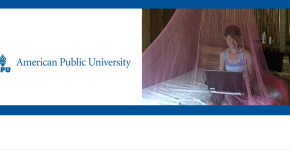
Michelle Watts, American Public University – Indigenous People of Costa Rica
Indigenous people in Costa Rica are looking to have their history preserved. Michelle Watts, faculty director and assistant professor in the school of security and global studies at American Public University, explores the uncertain future of many of these groups and their sacred sites in their Central American homeland. Michelle Watts has a degree in…

